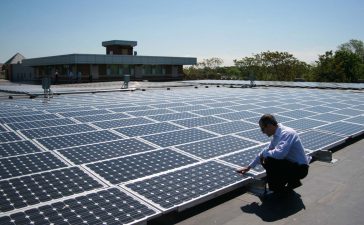As businesses continue to navigate a rapidly changing landscape, the future of work promises to redefine operations in profound ways. By 2025, emerging technologies, shifting workforce dynamics, and evolving workplace expectations will converge to create a transformative environment. Here are the key trends shaping business operations and how companies can prepare for the future.
1. The Rise of Hybrid Work Models
The pandemic permanently altered how organizations view remote work, leading to the widespread adoption of hybrid models. By 2025, these flexible arrangements will become the standard, with employees splitting their time between home and office. Businesses are investing in tools and technologies to support seamless collaboration, such as cloud-based platforms, virtual reality meeting spaces, and advanced project management tools.
Companies that embrace hybrid work models can access a broader talent pool, as geography becomes less of a barrier. However, managing distributed teams will require strong communication practices, robust cybersecurity measures, and a focus on maintaining company culture.
2. Artificial Intelligence and Automation
AI and automation are not just buzzwords; they are integral to the future of work. By 2025, businesses will increasingly rely on these technologies to streamline operations, reduce costs, and improve decision-making. Tasks ranging from data analysis to customer service and supply chain management will benefit from AI-driven solutions.

Automation will also reshape roles within organizations. Employees will focus more on creative, strategic, and interpersonal tasks, while routine and repetitive work will be handled by machines. To stay competitive, companies must invest in reskilling their workforce and fostering a culture of continuous learning.
3. Emphasis on Employee Well-being
Work-life balance and mental health have taken center stage in recent years, and this trend will only intensify by 2025. Organizations are recognizing that employee well-being directly impacts productivity and retention. Expect to see an increased focus on comprehensive wellness programs, including mental health support, flexible work schedules, and wellness stipends.
Moreover, workplace design will evolve to prioritize comfort and creativity. Offices will feature more collaborative spaces, quiet zones for focused work, and amenities that promote physical and mental health. Employers that prioritize well-being will attract top talent and foster loyalty among their teams.
4. Sustainability in Business Practices
Sustainability is no longer optional for businesses; it is a necessity. By 2025, companies will face greater scrutiny from consumers, investors, and regulators regarding their environmental and social impact. From reducing carbon footprints to adopting circular economy principles, sustainable practices will shape business operations across industries.
Technology will play a significant role in achieving sustainability goals. For instance, businesses will use AI to optimize energy consumption and blockchain to ensure transparent supply chains. By embedding sustainability into their operations, companies can drive innovation, reduce costs, and enhance their brand reputation.
5. The Role of Data in Decision-Making
Data has always been a valuable asset, but its role in decision-making will reach new heights by 2025. Advanced analytics, machine learning, and real-time insights will enable businesses to make more informed and agile decisions. Predictive analytics will help organizations anticipate market trends, manage risks, and optimize performance.
However, with the growing reliance on data comes the need for robust data governance. Companies must ensure that their data collection and usage practices comply with evolving privacy regulations. Building consumer trust through transparency and ethical data handling will be crucial.
6. Diversity, Equity, and Inclusion (DEI) as a Business Imperative
The future of work will be more inclusive, as businesses increasingly recognize the value of diversity. By 2025, DEI initiatives will move beyond HR departments to become a core aspect of business strategy. Diverse teams drive innovation, improve decision-making, and better reflect the global customer base.
Companies will adopt more sophisticated tools to measure and track their progress on DEI metrics. Inclusive hiring practices, equitable pay structures, and ongoing education on unconscious bias will become standard. Organizations that embed DEI into their operations will be better positioned to thrive in a globalized economy.
7. Evolving Workforce Dynamics
The workforce of 2025 will be multigenerational, with Baby Boomers, Gen X, Millennials, and Gen Z working side by side. Each generation brings unique skills, perspectives, and expectations. Businesses must create environments that cater to diverse needs, from technology preferences to career development opportunities.

Additionally, the gig economy will continue to expand, with more professionals opting for freelance or contract roles. Companies will need to adapt their hiring practices, offer competitive benefits for gig workers, and build flexible teams that can scale with demand.
Preparing for the Future of Work
To stay ahead in 2025 and beyond, businesses must adopt a proactive approach:
- Invest in Technology: Embrace tools that enhance productivity, collaboration, and security.
- Focus on Reskilling: Equip employees with the skills needed to thrive in an AI-driven world.
- Prioritize Sustainability: Embed eco-friendly practices into every aspect of operations.
- Cultivate Inclusivity: Build a workplace culture that values diversity and promotes equity.
- Enhance Agility: Foster a mindset that embraces change and innovation.
The future of work is not just about technology or trends; it is about people. Businesses that prioritize adaptability, sustainability, and inclusivity will not only survive but thrive in the dynamic landscape of 2025. By preparing today, organizations can unlock new opportunities and redefine what it means to succeed in the years to come.





